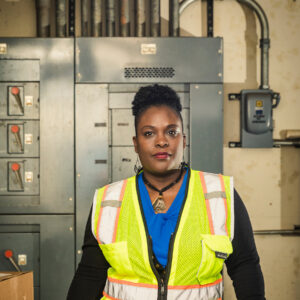The role of an electrician can vary from working on motor vehicles to the electrical installation in new buildings. They can also specialize in maintenance and industrial work. A large portion of an electrician’s work is done on the job and he or she will have the necessary tools to complete the job.
Construction Electrician usually concentrates on larger projects that involve more than just wiring. They may be part of a large construction team or work as sole workers. Regardless of whether they’re working on a small or large-scale project, it’s possible to find a position that is suited to your personality and skill set.
A sign electrician, for example, installs lighting that illuminates non-electric signs. A sign electrician might also be employed by a building owner or electrical contractor to upgrade or maintain existing lighting. In any case, the name of the game here is the ability to do the job with steady hands and a good eye.
Although it’s not necessarily the most obvious role, an instrumentation electrician is tasked with repairing or commissioning environmental control systems. These individuals work in conjunction with programmable logic centers and other pieces of equipment to ensure that the electrical infrastructure in a building is properly functioning.
There are a number of companies that offer these types of services. This company has been in business for more than sixty years and is the third-largest employer of licensed electricians in the state.
An electrician has been involved in several major projects in the City. One such project was a twelve-story hospital tower for the University of Health System. In addition to this project, the company is currently working with City Power and Light on a baggage claim system and a central plant.
An installation electrician, on the other hand, specializes in setting up and maintaining electrical systems in a building. Often, they will focus on residential or commercial buildings. Some of their projects include installing electrical wiring for new houses and installing equipment in a warehouse or industrial complex.
Electricians are the professionals who install electrical equipment in new buildings, as well as in existing structures. They are responsible for ensuring the safety of everyone on the job site.
These workers also perform maintenance on the electrical systems of factories and plants. This requires them to monitor the current condition of the machines and to identify any problems that may occur. If any equipment malfunctions, they will repair or replace it.
Electrical installation electricians can work as part of a larger construction team or on their own. They typically use hand and power tools. They work with electrical wires, transformers, and circuit breakers.
They are trained to follow local building codes. They may also choose to be represented by the International Brotherhood of Electrical Workers, the Electrical Trade Union, or the National Electrical and Communications Association.
They may be required to work in confined spaces and in hot and cold environments. Some electricians may even need to stand for extended periods of time.
Electricians have to follow the NEC, the National Electrical Code, which is a set of regulations that govern the installation and maintenance of electricity. They use electrical testing equipment, such as ohmmeters, harmonics testers, and other devices, to identify any electrical problems.
They also must be aware of any changes to the National Electrical Code and must be able to keep up with any updates. As the demand for construction rises, more electricians will be needed.
The majority of electricians are not required to have a college degree. Some trade associations offer comprehensive apprenticeship programs. In addition, most electricians will have on-the-job training. However, the skills and knowledge required for this job are extensive.

